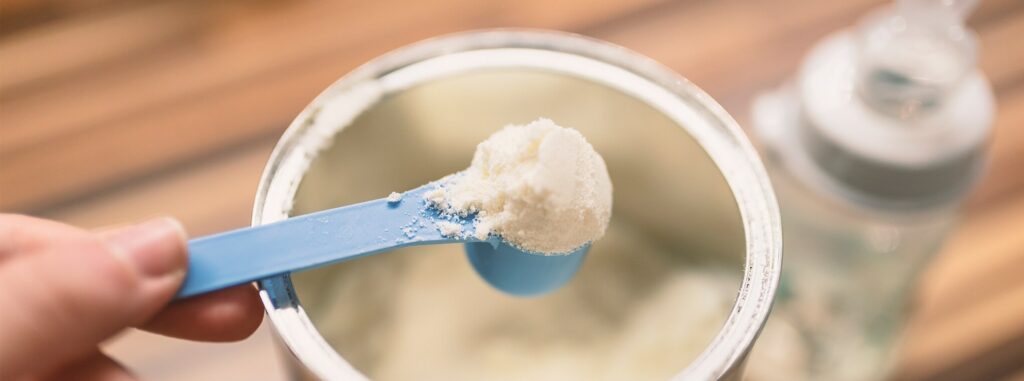
4 minute read
When is the right time to switch baby formula types?
As your baby grows, their nutritional needs change. Breast milk naturally changes to meet the nutritional requirements of infants, helping with their development. This is the best source of nutrition for your infants.If your baby is formula fed, there may come a time when they need to switch to a different age-specific formula that better supports their changing nutritional needs. Here are some simple tips for recognising if it’s time to switch to a more age-appropriate formula, and how you can go about it. Switching to a new formula isn’t complicated. That said, there are a few things you can do to make the transition as seamless as possible. Don’t fret though – the process is probably more straightforward than you think!
When to change formulas
Every baby’s development is different, and there’s no blanket rule about using (and switching) formulas. You just have to play things by ear. For instance, you might find that your baby is hungrier than usual. If you feel that their current formula isn’t supporting them as best as it could, we recommend seeking advice from your healthcare professional to discuss changing to a product that better supports your child’s nutrition. If you get the go-ahead from your healthcare professional to change formulas, you may want to consider slowly moving your baby onto the new product. Why? A gradual move may be gentler on your baby’s stomach. It’s as easy as that. Note: If and when you decide to change formula types, make sure you read the label on the products you are considering. This will tell you what age ranges the formula has been designed for, as well as any other health factors it’s taking into account. There is also a feeding guide that estimates how much your child should likely consume. Please consult this as well as the preparation method on the product label before using any formula.
How to make the change
Always read and follow the preparation methods on the product labels exactly. Increase the volume of the new formula you are transitioning your toddler to by 25% every 2 days, or as appropriate, until the target volume is reached. Day 1-2 – Prepare the child’s current formula to ¾ (75%) of the volume they should take in that feed. Then prepare the remaining ¼ (25%) of the feed with the new formula you are transitioning to. Repeat this every feed, for two days. Day 3-4 – Prepare ½ (50%) of the required amount with their current formula, and the remaining ½ (50%) of the feed with the new formula. Repeat this every feed, for two days. Day 5-6 – Prepare ¼ (25%) of the required amount with their current formula, and the remaining ¾ (75%) of the feed with the new formula. Repeat this every feed, for two days. Day 7-8 – If tolerated, prepare the entire (100%) recommended amount of feed for the new formula.
| Current brand | New formula | |
| Day 1 | 75% | 25% |
| Day 2 | 75% | 25% |
| Day 3 | 50% | 50% |
| Day 4 | 50% | 50% |
| Day 5 | 25% | 75% |
| Day 6 | 25% | 75% |
| Day 7 | 0% | 100% |
| Day 8 | 0% | 100% |
And remember…
Everyone is different. Some babies take to their new formula without any fuss; others take a little while to get used to it. The important thing is to be patient as your baby adjusts, and monitor any changes as they occur. If you have any concerns, always consult a healthcare professional. Whether you’re new to formula feeding or have plenty of experience, our Careline team is on hand to help answer any questions you have. Important Notice: Breast-feeding is the best form of nutrition for babies and provides many benefits to babies and mothers. It is important that, in preparation for and during breast-feeding, you eat a healthy, balanced diet. Combined breast and bottle-feeding in the first weeks of life may reduce the supply of your own breast-milk, and reversing the decision not to breast-feed is difficult. Always consult your Healthcare Professional for advice about feeding your baby. If you use infant formula, you should follow manufacturer’s instructions for use carefully. The social and financial implications of using infant formula should be considered. Improper use of an infant formula or inappropriate foods or feeding methods may present a health hazard. If you use infant formula, you should follow the manufacturer’s instructions for use carefully – failure to follow the instructions may make your baby ill.

Meet our Careline Experts
Made up of midwives, dietitians and mums, our Careline can help with all your parenting questions. Your support crew just got bigger!
Related content



